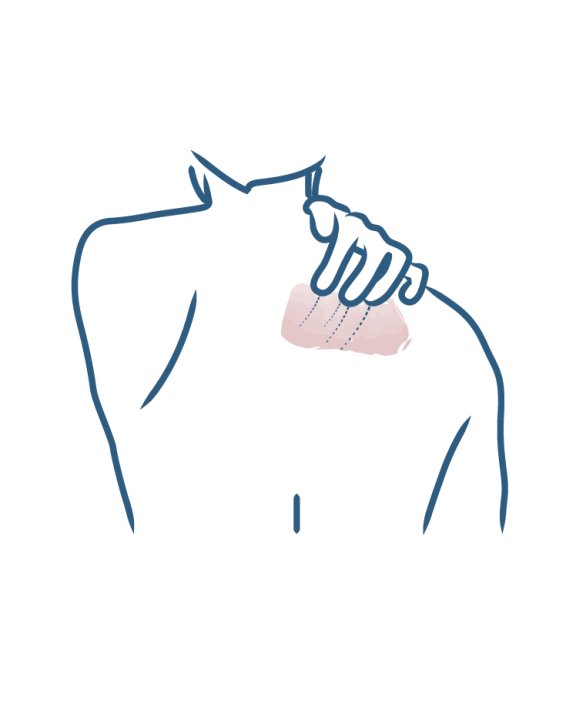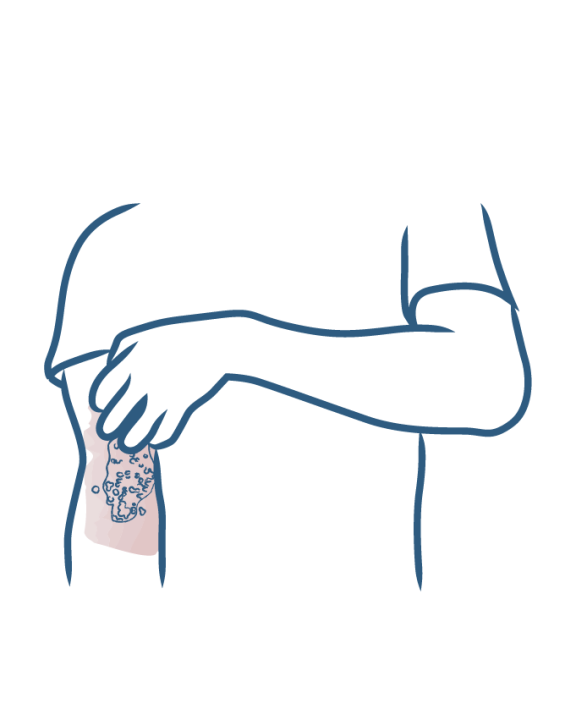What causes eczema?
- SUMMARY
- Eczema
Hereditary eczema
- Living with eczema day to day
- What are the habits to avoid when you have eczema?
- Eczema cream, ointment: what should you use?
- What soap should be used for eczema?
- Swimming pool, swimming when you have eczema?
- Eczema: can it be cured?
- Eczema: how to treat itching
- Eczema: what foods should you eat?
- Eczema: What daily reflexes should you adopt?
- Which detergent should eczema patients use?
- Eczema: how can flare-ups be avoided?
- What causes eczema?
- Clothing contact eczema
- Perspiration-induced eczema
- Contact eczema due to cosmetics
- Contact eczema due to medication and topical treatments
- Hereditary eczema
- Contact eczema due to cleaning products
- Contact eczema due to nickel and chromium
- Allergy-induced eczema
- Stress-induced eczema
- Body eczema: hands, feet, arms, back, face, etc.
- Arm eczema (elbows, armpits, forearms)
- Foot eczema
- Eczema in the ears
- Scalp eczema
- Eczema on the back
- Eczema on the stomach and belly button
- Eczema around the mouth
- Leg eczema or varicose eczema
- Eczema of the eyelids, eyes or palpebral eczema
- Eczema on the neck and nape of the neck
- Facial eczema
- Hand and finger eczema (chronic hand eczema)
- What is infantile eczema?
- Eczema in babies: what habits should you adopt?
- How should you treat baby’s and infant’s eczema?
- When should you consult a physician about your baby's eczema?
- Cortisone cream to relieve eczema?
- What soap should be used for babies with eczema?
- Eczema in babies and children: the areas most often affected

Hereditary eczema
Atopic eczema is a skin disease that is genetically determined. This is why it is referred to as constitutional eczema.
Figures speak for themselves
The figures speak for themselves: in homozygote twins ("real" twins, who have the same genetic makeup), the disease affects both individuals in 80% of cases. In the same way, hereditary transmission of the disease is around 50% if only one parent has it and 80% if both parents have it: this is called hereditary eczema.
Generally speaking, this is atopy, meaning a hereditary predisposition for developing excessive reactions due to common environmental allergens, which is transferred from generation to generation. It therefore isn't rare to hear that Grandpa Andrew had asthma or Uncle Paul had allergic rhinitis (also known as hay fever).
However, it is important to emphasize that these figures do not reach 100%. Atopic eczema depends both on genes and on several environmental factors.
How is eczema transmitted?
In the case of eczema, two types of genes are involved: some are involved in the formation of the skin barrier and others regulate the immune system. A mutation on a protein gene called filaggrin is very often discussed since it was highlighted in 2006, but it is found in only 30% of patients and thus remains insufficient to explain all cases of atopic dermatitis. Inversely, an individual can be a carrier of the mutation and never have eczema.
During pregnancy, parents with eczema are often afraid of transferring this skin disease to their child: of course they would prefer to prevent them from having the same difficulties as they do...If ever eczema occurs, parents must not blame themselves, but should consider that they are in a good position to be of help to their child and offer them the best of care.
More information
- Discover Contact eczema due to medication and topical treatments
What causes eczema?
Contact eczema due to medication and topical treatments
- Discover Allergy-induced eczema
What causes eczema?
Allergy-induced eczema
- Discover Contact eczema due to nickel and chromium
What causes eczema?
Contact eczema due to nickel and chromium
- Discover Stress-induced eczema
What causes eczema?
Stress-induced eczema
- Discover Contact eczema due to cosmetics
What causes eczema?
Contact eczema due to cosmetics
- Discover Perspiration-induced eczema
What causes eczema?
Perspiration-induced eczema
- Discover Clothing contact eczema
What causes eczema?
Clothing contact eczema
Our care routines
Skin prone to atopic eczema, contact eczema, chronic eczema and/or, eyelid eczema
Dermatological expertise
To better understand your skin and hair, discover our exclusive content and innovative care products designed to improve your quality of life..





